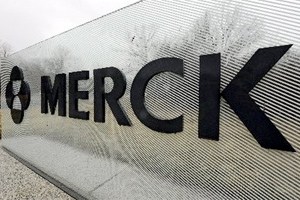 A major threat to Merck & Co’s big-selling diabetes drug Januvia has receded after a large-scale cardiovascular outcomes study gave it a clean bill of health.
A major threat to Merck & Co’s big-selling diabetes drug Januvia has receded after a large-scale cardiovascular outcomes study gave it a clean bill of health.
The US FDA has been investigating the safety of diabetes therapies in general – and DPP-4 inhibitors such as Januvia (sitagliptin) in particular – since signals of a possible negative impact on cardiovascular health were observed across several studies.
Earlier this month, an advisory committee to the US regulator recommended that DPP-4 inhibitors sold by AstraZeneca (AZ) and Takeda should have their labelling updated to include a risk of heart failure, although the FDA has yet to deliver a verdict.
The results of the 14,700-patient TECOS trial of Januvia allay fears that there may be come class-wide risk for the DPP-4 inhibitor class and will reassure diabetics and their physicians of the safety of Merck’s drug, which had sales of $4bn last year while a combination follow-up – Janumet (sitagliptin plus metformin) – added another $1.8bn.
TECOS achieved its primary objective, showing that there was no increase over placebo for Januvia on the combined outcomes of myocardial infarction, nonfatal stroke, unstable angina requiring hospitalisation, or cardiovascular-related death.
Importantly, the study was designed to specifically look at hospitalisations due to heart failure, which emerged as the safety signal for AZ’s Onglyza (saxagliptin) and Takeda’s Nesina (alogliptin), and concluded there was no increase for Januvia.
The data will be scrutinised further when presented at the American Diabetes Association (ADA) meeting in Boston in June, but analysts suggested the results could help Januvia consolidate its position as the leading DPP-4 inhibitor and potentially increase its market share, currently running at around 75%.
The importance of Januvia and Janumet to Merck was reinforced in its first-quarter results statement, which showed sales of the franchise rose 4% to $1.39bn, extending its position as the firm’s top-selling product.
Overall pharma sales fell 2% on the back of declines for cholesterol drugs Zetia (ezetimibe) and Vytorin (ezetimibe/simvastatin) as well as immunotherapeutic Remicade (infliximab) which is facing biosimilar competition in its first market although follow-up Simponi (golimumab) helped offset the drop.
PD-1 inhibitor Keytruda (pembrolizumab) added $83m in its first full quarter on the market as a melanoma therapy – ahead of rival Opdivo (nivolumab) from Bristol-Myers Squibb which launched later in the US. Meanwhile, first-in-class insomnia therapy Belsomra (suvorexant) and new antibiotic Zerbaxa (ceftolozane/tazobactam) also got off to a good start, according to chief executive Kenneth Frazier.
“Our strong performance this quarter demonstrates that our scientific and business strategies, together with our focused investments, are paying off,” he said.




